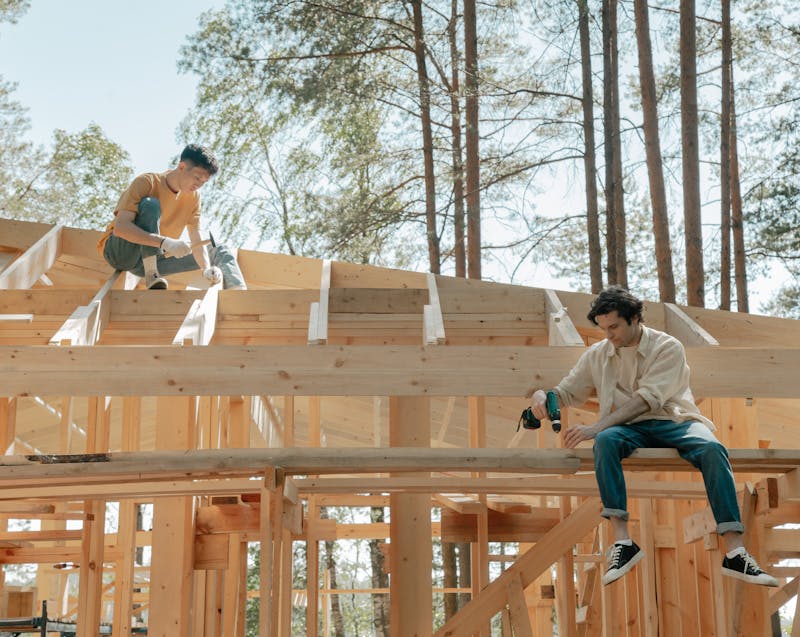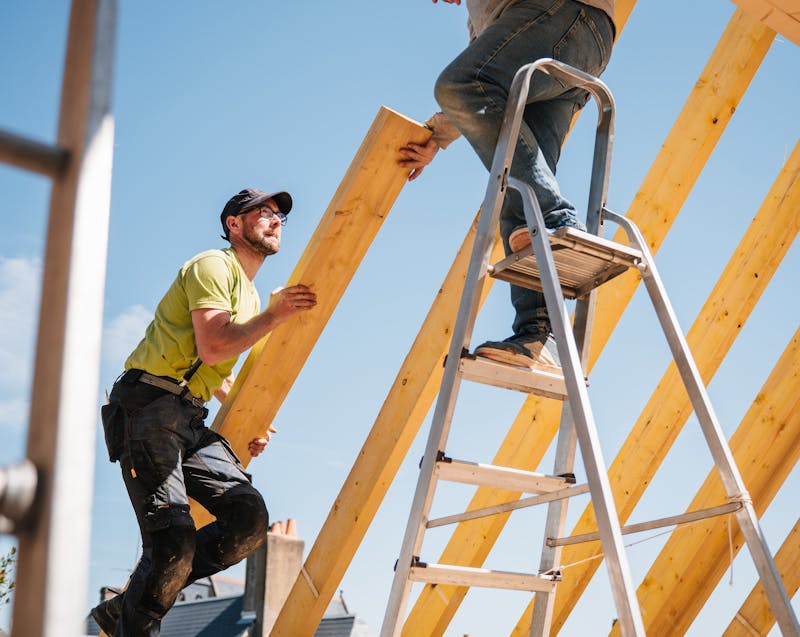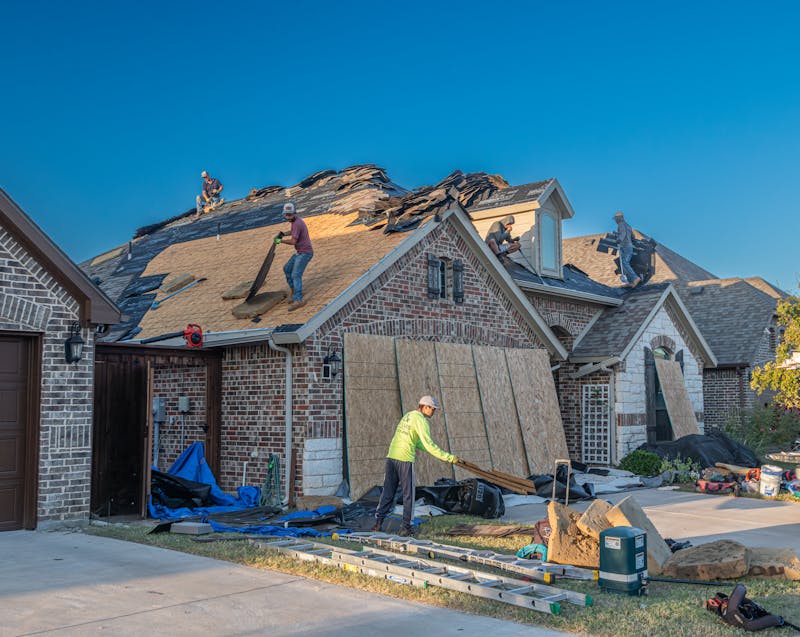Certified Roofing vs. DIY: Why Professional Expertise Saves Money in the Long Run
- DIY roofing often leads to hidden expenses, safety risks, and voided warranties that cost more in the long run.
- Certified roofing companies offer access to better materials, proper installation, and extended warranties.
- Professional expertise ensures durability, energy efficiency, and compliance with building codes.
- Hiring an experienced roofing company that’s certified helps increase property value and simplifies insurance claims.
- Minor tasks like gutter cleaning or debris removal are safe for DIY, but major roof work should always be left to professionals.
When a roof starts to leak or shows visible signs of wear, many homeowners ask themselves the same question: “Should I fix this myself or call in a professional?” The appeal of doing it yourself is easy to understand. It looks like a chance to save money, learn something new, and avoid what feels like a large contractor’s bill. But the reality is far less simple. Roofing is one of the most complex, labor-intensive, and hazardous home improvement projects. Mistakes can lead not only to wasted materials but also to thousands of dollars in additional repairs.
On the other hand, choosing an experienced roofing company that’s certified means you are getting more than labor—you are buying peace of mind, warranties, and long-term protection for one of the biggest investments you own: your home.
This article dives deep into the differences between DIY roofing and professional certified roofing services, exploring true costs, risks, warranties, and long-term financial benefits. By the end, you’ll see why professional expertise isn’t an expense—it’s an investment that saves money in the long run.
The Appeal of DIY Roofing

Before discussing why professional work provides more value, it’s worth understanding why DIY roofing is so tempting for many homeowners.
- Perceived Cost Savings: The most common reason homeowners turn to DIY roofing is to avoid labor costs, which can account for 40–60% of the project’s total expense.
- Accessibility of Tutorials: With countless online videos and guides, it appears easy to learn the basics of shingle replacement or leak repair.
- Sense of Accomplishment: For those who enjoy hands-on work, completing a roofing task can feel rewarding.
- Immediate Fixes: When a leak appears, the temptation is strong to climb up the ladder and patch it rather than waiting for an appointment with a contractor.
While these motivations make sense, they rarely account for the technical demands and safety concerns that roofing projects require. What looks like a quick weekend job can quickly spiral into a costly mistake.
The True Costs of DIY Roofing
Material Costs
Many homeowners assume they’ll save by buying materials directly. However, certified roofing companies often receive materials at wholesale or contractor pricing, which is far lower than retail. A homeowner may pay full price for shingles, underlayment, and flashing while also risking overbuying or underbuying due to inaccurate measurements. Even small mistakes in purchasing can cost hundreds of dollars.
Hidden Expenses
DIY roofing requires more than just shingles and nails. Consider the costs of:
- Safety Equipment: Harnesses, helmets, and fall protection gear are essential and expensive.
- Tools: Roofing nailers, compressors, roofing knives, and ladders may need to be purchased or rented.
- Waste Disposal: Old roofing materials must be disposed of properly, often requiring a rented dumpster.
- Time Off Work: Roofing can take much longer for amateurs, leading to lost income from taking extra days off.
These hidden expenses often make DIY projects costlier than expected.
Safety Risks
Roofing is consistently ranked among the most dangerous construction trades. Falls from heights account for nearly one-third of construction-related fatalities each year. Even a minor fall can result in broken bones or long-term injuries. For homeowners without training, working on a roof means putting both health and finances at risk due to medical bills and potential lost wages.
Warranty Limitations
Many roofing products come with warranties that only remain valid if installed by certified professionals. If a homeowner attempts a DIY installation and a problem arises later, the manufacturer may refuse to honor the warranty. That leaves the homeowner responsible for all repair costs, no matter how expensive.
What It Means to Hire a Certified Roofing Company
Hiring an experienced roofing company that’s certified offers far more than basic installation. Certification is proof of professional training, adherence to building codes, and access to premium materials.
Types of Roofing Certifications
- Manufacturer Certifications: Proof that the company has been trained to install specific roofing products correctly.
- State Licenses: Legally required in many areas to ensure compliance with safety and building standards.
- Insurance and Bonding: Protects homeowners from liability in case of accidents or property damage.
Why Certification Matters
- Verified Expertise: Certified companies follow industry best practices, ensuring durability and safety.
- Access to Quality Materials: Many top roofing systems are only sold to certified contractors.
- Code Compliance: Certified roofers know local regulations, helping you avoid fines or failed inspections.
When you choose certified professionals, you aren’t just paying for installation—you’re paying for reliability, accountability, and long-term protection.
Long-Term Financial Benefits of Professional Expertise

Certified roofing services may appear more expensive upfront, but the long-term savings are undeniable.
Durability and Longevity
A roof installed by certified professionals can last 20–30 years or longer, depending on the materials used. By contrast, poorly executed DIY jobs may fail within a few years, leading to early replacements.
Warranties
Most certified roofing companies offer warranties covering both materials and labor. These warranties can last 10–25 years or more, saving homeowners thousands in unexpected repairs.
Energy Efficiency
Professional installations ensure proper ventilation, insulation, and sealing. This directly reduces heating and cooling costs throughout the year.
Insurance Advantages
When storm damage occurs, insurance claims are often easier to process if the roof was installed by certified professionals. DIY work may raise red flags, delaying or denying claims.
Increased Property Value
Homes with roofs installed by certified professionals typically appraise higher. Buyers feel more confident knowing the roof has a long lifespan and valid warranties.
Case Scenarios: DIY vs. Certified Roofing
To better illustrate the differences, let’s look at two examples.
Scenario 1: DIY Leak Repair
- A homeowner notices a small water stain on the ceiling.
- They climb onto the roof, replace a few shingles, and believe the problem is solved.
- Months later, hidden water damage causes mold growth, requiring drywall replacement and structural repairs costing $5,000.
Scenario 2: Certified Roofing Company
- A certified contractor inspects the same roof and identifies multiple weak points.
- They properly repair the damage, ensuring all flashing, underlayment, and shingles are secured.
- The repair is covered by warranty, and the homeowner avoids thousands in future costs.
This side-by-side comparison demonstrates that certified work may cost more initially, but it prevents significant financial strain later.
How to Choose the Right Certified Roofing Company
Not all roofing contractors are created equal. Homeowners should carefully vet potential companies before signing a contract.
Checklist for Homeowners
- Verify Licenses: Ensure the company holds the necessary state or regional licenses.
- Confirm Insurance: The contractor should carry liability and worker’s compensation coverage.
- Ask About Certifications: Look for manufacturer-backed training and certifications.
- Request Detailed Estimates: Compare line-by-line costs to avoid hidden fees.
- Read Reviews and References: Check customer feedback and ask for local references.
- Understand Warranties: Know exactly what is covered and for how long.
By taking these steps, you can feel confident in choosing an experienced roofing company that’s certified, guaranteeing your investment is protected.
When DIY Roofing Makes Sense
While major projects should be left to professionals, there are small maintenance tasks that homeowners can safely do themselves.
- Gutter Cleaning: Removing leaves and debris to prevent water overflow.
- Basic Visual Inspections: Looking for cracked, curled, or missing shingles from the ground.
- Clearing Debris: Removing branches or buildup that could trap moisture.
- Minor Caulking: Sealing small gaps around flashing if accessible from a safe location.
These small efforts help extend your roof’s life, but anything beyond basic maintenance should be handled by certified professionals.
Conclusion
DIY roofing may seem appealing as a way to save money, but the risks, hidden costs, and lack of warranties make it a short-sighted decision. Roof repairs and installations require technical knowledge, safety training, and access to materials that only certified professionals can provide.
Choosing an experienced roofing company that offers certification and warranties ensures:
- Longer-lasting results.
- Valid warranties that protect your investment.
- Greater energy efficiency and lower utility bills.
- Higher property value and easier insurance claims.
- Most importantly, safety for you and your family.
In the long run, professional roofing expertise doesn’t just save money—it protects your home, your health, and your peace of mind.

